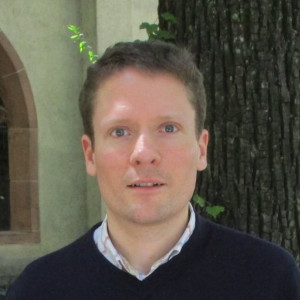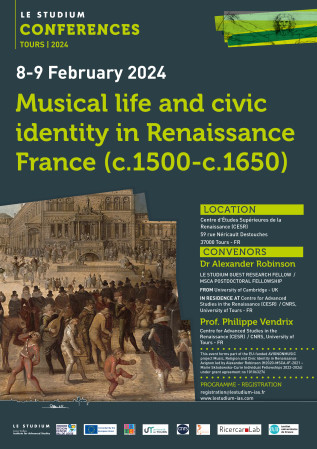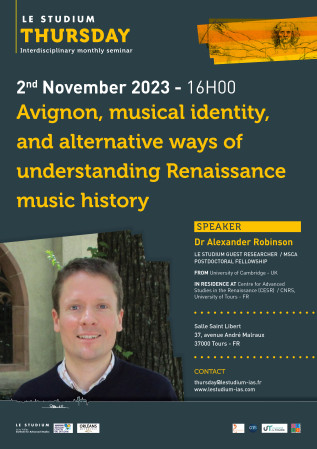Alexander Robinson

From
In residence at
Centre for Advanced Studies in the Renaissance (CESR) / CNRS, University of Tours - FR
Host scientist
Philippe Vendrix
PROJECT
Music, Religion and Civic Identity in Renaissance Avignon (c.1500–1630)
This EU-funded interdisciplinary project (AVIGNONMUSIC, Marie Skłodowska-Curie Individual Fellowships 2022-2024) will reveal how musical life in Renaissance Avignon (c.1500–1630) was directly interlinked with events happening on a broader religious, social and political level. Alongside being the first in-depth study of Avignon’s musical life during this period, it represents a significant and much-needed departure from the Parisian/royal court focus that has typified almost all previous scholarship on French Renaissance music. Two fundamental issues will provide the basis for this investigation: a) the question as to whether Avignon’s musical life can be said to reflect localised and/or nationalised trends; and b) the effect that Avignon’s unique status as a Papal enclave had on its institutions and musical practices (for example, in the presence of Italian personnel or musical developments). These broader issues will serve as a backdrop for exploring the full spectrum of musicians’ professional activities, as well as the various contexts within which they made the city resound – i.e. from its ecclesiastical establishments (such as Notre-Dame des Doms Cathedral and the Collégiale Saint-Agricol), to the instrumentalists attached to the city’s guilds, to the various civic spectacles within which musicians participated (like ceremonial entries). The results of this innovative survey will thus constitute a major contribution to the fields of early modern soundscapes and cultural studies; by extension, they will also shed new light on Avignon’s urban identity at this time, thereby leading to a better understanding of music making in France during the long sixteenth century.


